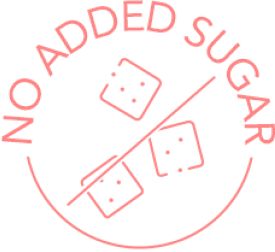Debunking Five Myths About Hair Oiling
Our hair goes through a lot, from styling and harsh shampooing to stress and PCOS-related hair loss. This is probably why we're always looking for a natural solution to promote healthy hair growth and maintain lustrous locks.
One method that has stood the test of time for pampering hair, strengthening follicles, increasing hair growth, and adding shine is an ancient technique called hair oiling.

Hair Oiling: A Treasured Ayurvedic Principle for Hair Growth
Hair oiling is a centuries-old, proven and effective Ayurvedic secret for stronger hair. Men and women have practised it for generations, either as a ritual or for its medicinal benefits. If you grew up in an Indian household, undoubtedly, a stress-melting scalp massage (aka champi) would have been a part of your weekly haircare routine.
This hair care practice involves applying natural hair oil and gently massaging it into your scalp. The oil is then spread throughout your hair, focusing on the ends. Oiling your scalp has multiple benefits, such as:
- It moisturises and nourishes your hair.
- Oiling improves scalp health by reducing the chances of a dry and flaky scalp.
- It improves hair texture, avoids split ends and heals broken hair shafts.
- It boosts hair length and volume.
- Oiling protects your hair against damage and prevents excessive hair shedding.
- Massaging the scalp promotes relaxation and reduces tension.
The Science Behind Hair Oiling
The sebaceous glands in our scalp naturally produce an oily substance called sebum, which helps maintain hair health. Sebum is a natural conditioner that moisturises and lubricates the hair. However, when sebum is not produced in balanced amounts, the scalp feels extra greasy or super dry and flaky.
Besides, harsh environmental conditions, hard water, and hair washing with harmful shampoos strip away the scalp's sebum. This is where hair oiling can be helpful.
Rooting For You, a rosemary essential hair oil with the power of 9 other potent natural ingredients, mimics the effects natural sebum provides. By applying the oil, your scalp replenishes the moisture and seals it in the hair, thus maintaining a natural balance. The scalp massage also improves the blood circulation.
Observed as a custom, hair oiling sessions always feel like a luxurious spa experience at home. Trichologists are also certifying the remarkable advantages of hair oiling. However, there's a lot of misinformation and a few myths concerning hair oils. Let's look at what's true and what isn't.
Busting Top Myths About Hair Oiling
Myth #1: All hair oils are the same
Truth: Not every hair oil offers the same value
Based on the natural ingredients, different hair oils provide different medicinal benefits. For example, Rooting For You hair oil is formulated using:
- Rosemary essential oil - stimulates hair growth and improves circulation to the scalp.
- Pumpkin seeds - a natural DHT blocker.
- Jojoba - moisturises the scalp and helps balance oil production.
- Argan oil - rich in antioxidants.
- Coconut - penetrates the hair shaft and reduces protein loss.
Myth #2: Oil must be left overnight for effective results
Truth: Applying hair oil for 2-3 hours is more than enough
Contrary to popular belief, applying oil overnight may not give the best result, especially to those with dandruff or oily scalp. It is advisable to apply hair oil only to the affected, dry areas for 1 hour or a maximum of 3 hours to enjoy glossy and healthy hair.
Myth #3: Applying oil in increased quantities is better
Truth: The quantity does not determine its efficacy
The "more the better" concept does not apply to hair oiling. In fact, an unreasonable amount of oil can worsen issues for those with oily or damaged hair. Furthermore, you will need more shampoo to remove all the oil. This can strip away all the natural essential oils from your scalp and cause dryness. Instead, you must focus on applying a few oil droppers on your scalp and gently smooth over the tips to avoid over-saturation.
Myth #4: Hair oiling increases dandruff
Truth: Regular oiling helps get rid of dandruff
First, it is crucial to understand what causes dandruff. Fungal infections, lack of scalp moisture, or overuse of chemical products can cause dandruff. Hair oil with suitable properties and non-comedogenic ingredients (like Rooting For You) can nourish the hair without leaving a heavy residue or making it greasy.
Myth #5: Oiling every day is essential for hair growth
Truth: Oiling 1 or 2 times a week is sufficient
Oiling your hair every day can clog your hair follicles and weigh down fine hair strands. Applying oil once or twice a week is enough for healthy hair growth.
So, is oiling good for your hair?
Absolutely, hair oiling is undeniably effective. The Rooting For You hair oil is a luxurious blend of lightweight oils and scalp-stimulating organic herbs like Brahmi, Sesame, and Sweet Almond. It can address all hair concerns and is a must-have for all hair types.






